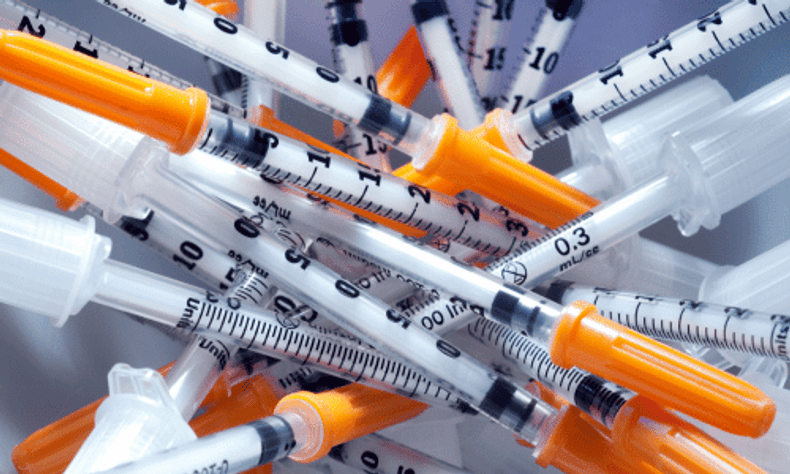For those who rely on injectable medications, staying on track during a power outage or natural disaster can be a real concern. Whether you're managing a chronic condition or caring for a loved one, knowing how to safely store, prepare, and administer injections during emergencies can make all the difference.
Below, we’ll walk through what you need to know to stay safe—even when the lights go out.
1. Know Which Medications Require Refrigeration
Not all injectables are temperature-sensitive, but many are. Insulin, fertility medications, certain biologics (like those used for autoimmune diseases), and hormone therapies often need to be stored at specific temperatures.
- Check the label or ask your pharmacist: Most medications will specify their ideal temperature range (typically between 36°F and 46°F).
- Have a cooler ready: Keep a small, insulated cooler or thermal bag and frozen gel packs on hand for short-term storage during outages.
- Avoid freezing: Just as heat can damage meds, freezing them can make them ineffective. Don’t place them directly against ice packs—wrap them in a cloth or store them in the middle of the cooler.
2. Use Safe Light Sources During Nighttime Injections
Power outages often mean no overhead lights—but proper visibility is key to safe injections.
- Keep a hands-free flashlight or headlamp in your emergency kit. This makes it easier to see clearly while keeping your hands free for prepping and injecting.
- Avoid open flames or candles near medical supplies. They can increase the risk of contamination or accidents.
3. Maintain Sterility and Hygiene—Even in Tough Conditions
Clean injection technique is critical, especially when you're in an environment that might not be as sterile as usual.
- Keep alcohol swabs, gloves, and hand sanitizer in your emergency supplies.
- Wash your hands thoroughly if possible, or sanitize them well before handling syringes or medication.
- Store syringes and needles in sealed, dry containers to protect them from moisture and dust.
BulkSyringes.com offers a range of individually wrapped syringes and sterile supplies—great for packing in an emergency kit without worrying about contamination. Explore syringe options here.
4. Build a Basic Injection Emergency Kit
Here’s what to consider keeping in a compact, grab-and-go kit:
- Your current medications
- Spare syringes and needles (in case one clogs or breaks)
- A cooler or insulated pouch
- Ice packs or gel packs
- Alcohol pads and gloves
- Headlamp or flashlight with spare batteries
- A written dosing schedule and any special instructions
If you're far from a pharmacy or live in a rural area, consider buying syringes in bulk to reduce the chance of running out when disaster strikes.
5. Know When to Discard Compromised Medications
If your injectable medication becomes too hot, too cold, or appears cloudy, discolored, or separated (when it normally isn’t), it may no longer be safe to use.
- Don’t inject if you’re unsure. Contact your doctor or pharmacist if you suspect your medication has gone bad.
- Dispose of it properly. Use a sharps container or follow your local guidelines for medication disposal.
Stay Ready, Stay Safe
Being prepared for emergencies is about more than flashlights and batteries—it’s also about making sure your health care doesn’t miss a beat. Having the right tools, knowledge, and backup plan ensures that even in the worst-case scenario, you’re still in control.
For long-term preparedness, consider keeping a supply of bulk, sterile syringes and safe storage containers on hand. Shop BulkSyringes.com to make sure you’re ready for whatever comes your way.

